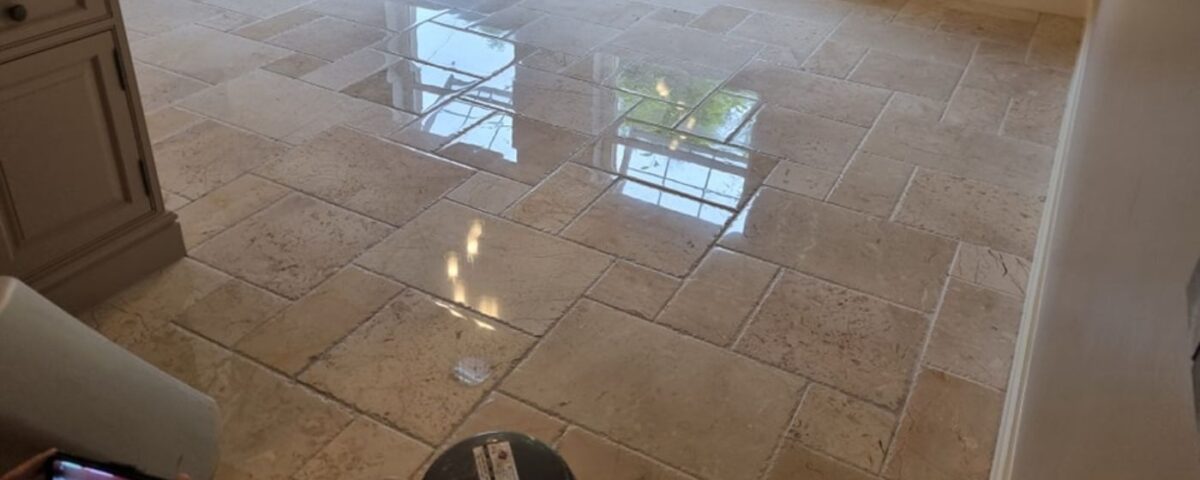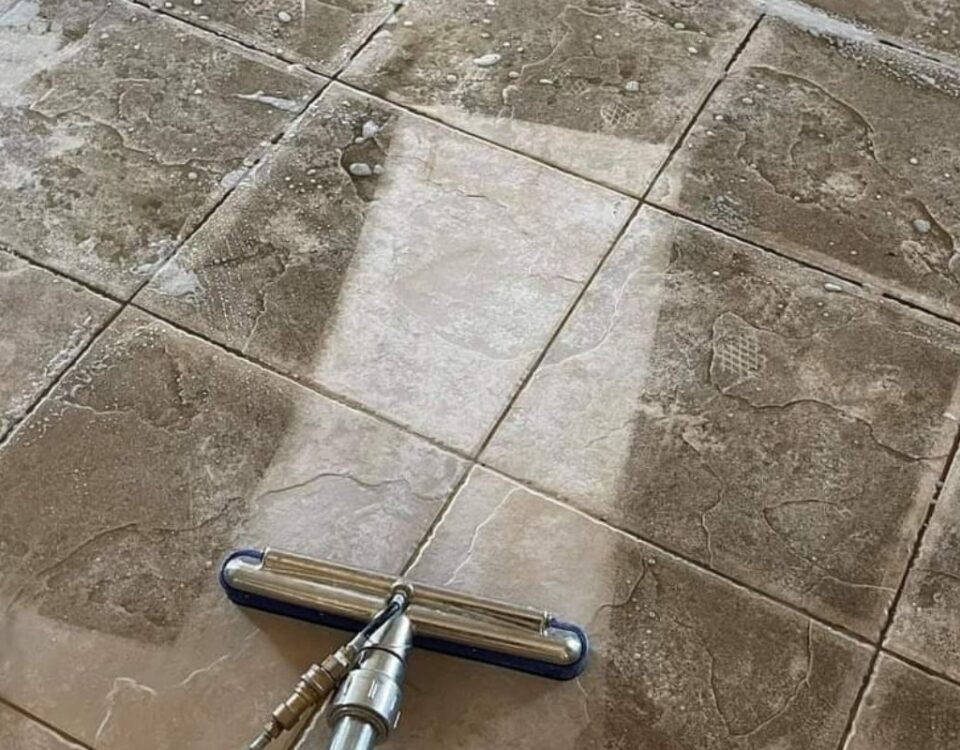There are several types of interior stone flooring, including:
1. Marble: Marble is a popular choice for flooring because it has a luxurious appearance and is durable. It comes in a range of colours and patterns, making it suitable for a variety of design styles.
2. Granite: Granite is another popular choice for flooring because it is also durable and has a distinctive appearance. It is resistant to scratches and stains, making it a good choice for high-traffic areas.
3. Limestone: Limestone is a soft, porous stone that is often used for flooring in homes and commercial buildings. It comes in a range of colours and textures, and can be polished to create a shiny finish.
4. Slate: Slate is a durable and versatile stone that is often used for flooring in high-traffic areas. It has a natural, slip-resistant surface and comes in a range of colours and textures.
5. Travertine: Travertine is a type of limestone that has a porous, chalky appearance. It is often used for flooring in a polished or honed finish, and can be sealed to protect it from stains and damage.
Marble flooring benefits
Marble flooring has many benefits, including its durability, elegance, and versatility. Marble is a natural stone that is known for its beauty and durability, making it a popular choice for flooring in both residential and commercial settings. Marble flooring is also resistant to stains and damage from water, heat, and scratching, making it a practical choice for high-traffic areas. Additionally, marble comes in a wide range of colours and patterns, so you can choose a look that suits your personal style.
Granite flooring benefits
Granite is a type of natural stone that is commonly used for flooring. Like marble, granite is known for its durability and resistance to stains and damage. It is also easy to clean and maintain, making it a popular choice for high-traffic areas. Granite flooring is available in a wide range of colours and patterns, so you can choose a look that complements your decor.
Additionally, granite is heat-resistant, so it can be used in areas with high heat, such as kitchens and bathrooms. It is also resistant to scratching and scuffing, so it can withstand the wear and tear of everyday life.
Limestone flooring benefits
Limestone is a type of natural stone that is often used for flooring. Like other natural stone flooring options, such as marble and granite, limestone is known for its durability and resistance to stains and damage. It is also easy to clean and maintain, making it a popular choice for high-traffic areas. Limestone flooring is available in a range of colours and patterns, so you can choose a look that complements your decor. Additionally, limestone is a porous stone, which means it can be treated with a sealant to make it even more resistant to staining and damage. This makes it a good choice for areas where spills and moisture are common, such as kitchens and bathrooms.
Slate flooring benefits
Slate is a type of natural stone that is often used for flooring. Like other natural stone options, such as marble, granite, and limestone, slate is known for its durability and resistance to stains and damage. It is also easy to clean and maintain, making it a popular choice for high-traffic areas. Slate flooring is available in a range of colours and patterns, so you can choose a look that complements your decor. Additionally, slate is a non-slip surface, so it is a good choice for areas where there may be a risk of slipping, such as bathrooms and entryways. It is also resistant to scratching and scuffing, so it can withstand the wear and tear of everyday life.
Travertine flooring benefits
Travertine is a type of natural stone that is often used for flooring. Like other natural stone options, such as marble, granite, limestone, and slate, travertine is known for its durability and resistance to stains and damage. It is also easy to clean and maintain, making it a popular choice for high-traffic areas. Travertine flooring is available in a range of colours and patterns, so you can choose a look that complements your decor. Additionally, travertine is a porous stone, which means it can be treated with a sealant to make it even more resistant to staining and damage. This makes it a good choice for areas where spills and moisture are common, such as kitchens and bathrooms.
Why should I have my stone flooring sealed
It is recommended to have your stone flooring sealed for several reasons. First, sealing your stone flooring can help to protect it from stains, spills, and other types of damage. Stone is a porous material, which means that it can absorb liquids and other substances, making it susceptible to staining. Sealing your stone flooring with a penetrating sealer can help to create a barrier that prevents liquids and other substances from penetrating the surface of the stone, helping to protect it from stains and other types of damage.
Second, sealing your stone flooring can help to make it easier to clean and maintain. When stone is sealed, dirt and other debris are less likely to become embedded in the pores of the stone, making it easier to clean and maintain. This can help to extend the life of your stone flooring and keep it looking beautiful for longer.
Third, sealing your stone flooring can help to enhance its natural beauty. When stone is sealed, the colours and patterns of the stone are more vibrant and pronounced, which can help to enhance its overall appearance. Sealing your stone flooring can help to bring out the best in your flooring, making it a more attractive and appealing feature in your home or commercial space.
How to choose the correct residential stone flooring for your home
When choosing stone flooring for your home, there are a few key factors to consider. First, consider the location and intended use of the flooring. Different types of stone flooring may be better suited to different areas of your home, depending on the level of foot traffic, the presence of moisture, and other factors. For example, granite or marble may be a good choice for high-traffic areas, such as entryways and hallways, while slate or travertine may be a good choice for wet areas, such as bathrooms and laundry rooms.
Next, consider the overall style and design of your home. Stone flooring comes in a wide range of colours, patterns, and textures, so it is important to choose a style that complements your decor and personal taste. You may want to choose a colour and pattern that coordinates with the colours and finishes in your home, or you may want to choose a more bold and striking pattern to make a statement.
Finally, consider the maintenance and care requirements of the stone flooring you are considering. Different types of stone flooring may require different levels of maintenance and care, so it is important to choose a type of stone that is easy to clean and maintain. You may want to consult with a professional flooring contractor to determine the best type of stone flooring for your home and to get advice on how to care for and maintain your stone flooring over time.
How to choose the correct commercial stone flooring for your business premises
When choosing commercial stone flooring for your business premises, there are several key factors to consider. First, consider the location and intended use of the flooring. Different types of stone flooring may be better suited to different areas of your business, depending on the level of foot traffic, the presence of moisture, and other factors. For example, granite or marble may be a good choice for high-traffic areas, such as lobbies and hallways, while slate or travertine may be a good choice for wet areas, such as bathrooms and kitchens.
Next, consider the overall style and design of your business. Stone flooring comes in a wide range of colours, patterns, and textures, so it is important to choose a style that complements your business’s branding and overall aesthetic. You may want to choose a colour and pattern that matches your business’s logo or colour scheme, or you may want to choose a more neutral colour and pattern that will coordinate with a variety of design elements.
Finally, consider the maintenance and care requirements of the stone flooring you are considering. Different types of stone flooring may require different levels of maintenance and care, so it is important to choose a type of stone that is easy to clean and maintain. You may want to consult with a professional flooring contractor to determine the best type of stone flooring for your business and to get advice on how to care for and maintain your stone flooring over time.
Protecting and maintaining your stone floors
To protect and maintain your stone floors, there are a few key steps you can take. First, it is important to clean your stone floors regularly to prevent dirt and debris from becoming embedded in the pores of the stone. Use a mild, pH-neutral cleaner and a soft, damp mop or cloth to clean your stone floors, avoiding harsh cleaners that may damage the surface of the stone. Be sure to rinse the floor thoroughly with clean water after cleaning to remove any residue.
Second, it is important to protect your stone floors from damage and stains. Use mats or rugs in high-traffic areas to prevent scratching and scuffing, and use coasters, placemats, and trivets under heavy objects, such as furniture and appliances, to prevent damage from impact.
Additionally, it is a good idea to seal your stone floors with a penetrating sealer to create a barrier that protects the stone from stains and other types of damage.
Third, it is important to repair any damage to your stone floors as soon as it occurs. If you notice chips, cracks, or scratches on your stone floors, it is important to repair them as soon as possible to prevent them from getting worse. You may be able to repair minor damage yourself using a stone repair kit, or you may need to hire a professional to repair more significant damage.
By following these steps, you can help to protect and maintain the beauty and durability of your stone floors for years to come.
Why it is important to hire a professional stone floor cleaning company
It is important to hire a professional stone floor cleaning company for several reasons. First, professional stone floor cleaning companies have the experience, expertise, and specialised equipment to properly clean and maintain your stone floors. They know how to identify the type of stone and the specific cleaning and maintenance needs of each type of stone, and they have the tools and products to clean and restore your stone floors to their original beauty.
Second, professional stone floor cleaning companies can provide deep cleaning and restoration services that are not possible with regular cleaning methods. For example, they may use specialised equipment, such as diamond-coated abrasives, to remove deep-seated dirt and stains that have become embedded in the pores of the stone. They may also be able to repair chips, cracks, and other damage to your stone floors, restoring them to their original condition.
Third, professional stone floor cleaning companies can provide ongoing maintenance services to help keep your stone floors looking beautiful over time. This can include regular cleaning, sealing, and other maintenance services, as well as timely repairs to prevent small problems from becoming bigger ones.
Overall, hiring a professional stone floor cleaning company can help to protect your investment in your stone floors, ensuring that they remain beautiful and durable for years to come.
Get in touch with us today to find out more information about our stone cleaning and sealing services in Belfast and the surrounding areas.


